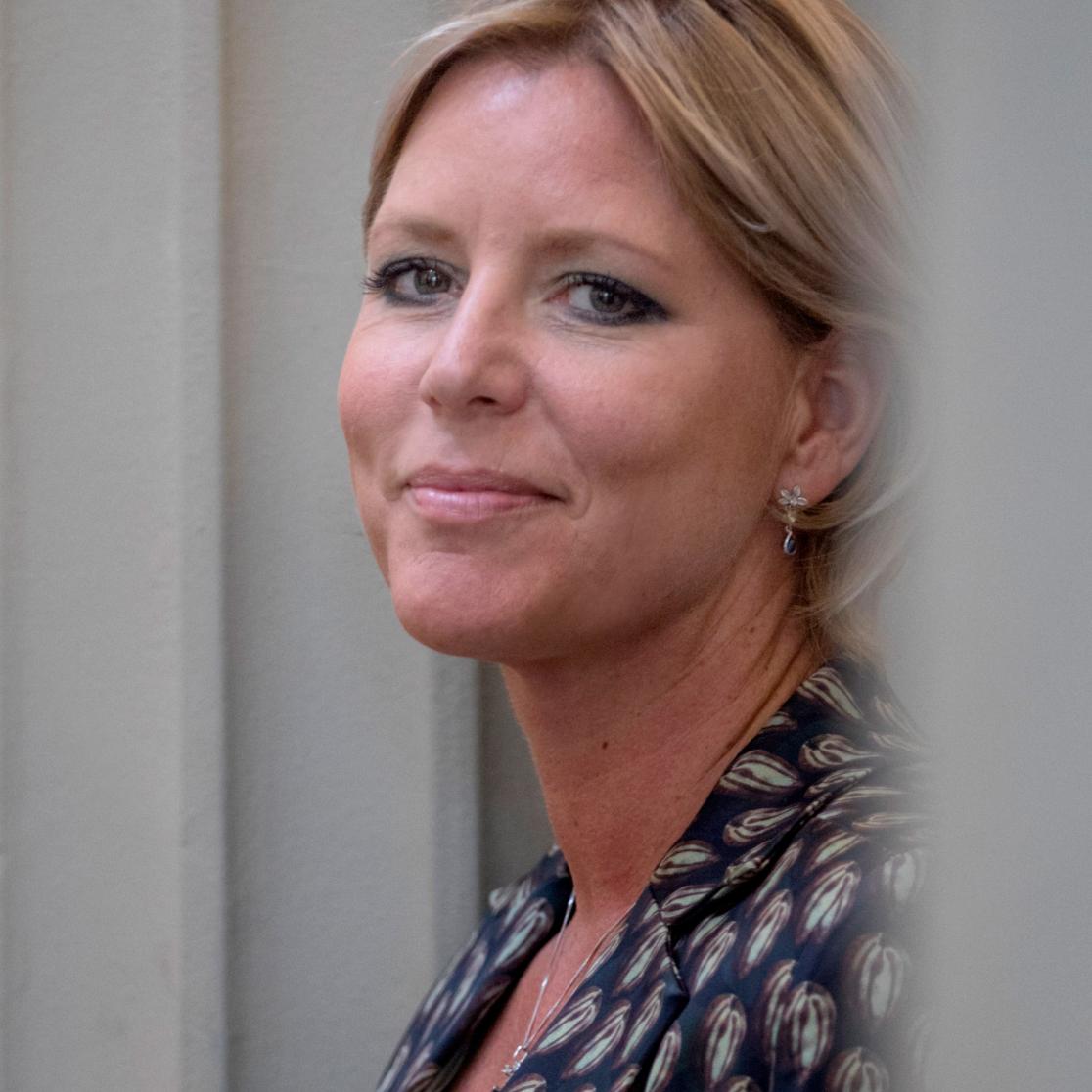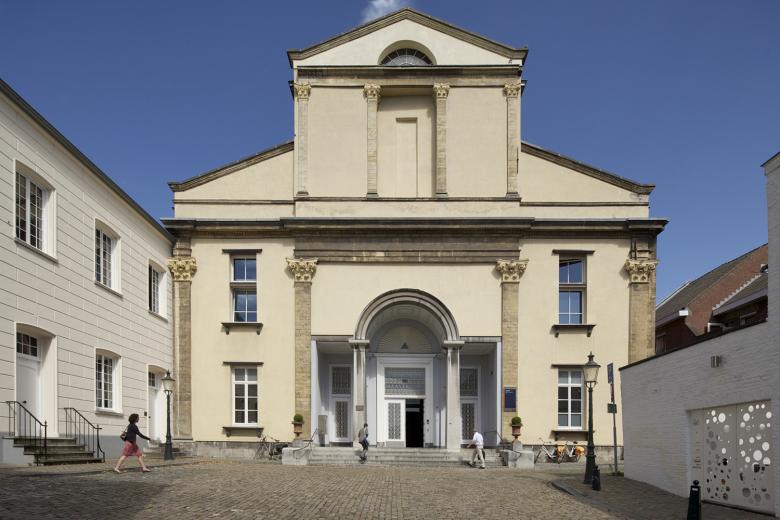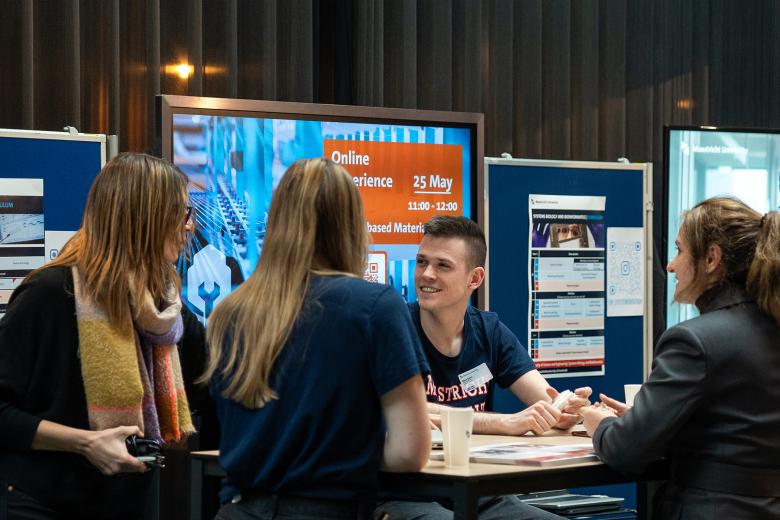Sexual Safety Programme launched at Maastricht University
The beginning of the new academic year at Maastricht University (UM) also marks the introduction of the new UM Sexual Safety Programme. Information, classes, and training events will be offered in a variety of different formats and on multiple occasions with the aim of increasing sexual safety among students and promoting discussion of the topic. Beyond this, the programme includes expanded support for victims/survivors and others affected by sexual violence. The programme is both for and by students, who are involved in its implementation alongside staff and external trainers.
The programme is a response to the Amnesty International manifesto against sexual violence signed by the university at the end of 2021. Students and staff have also been calling for the university to expand measures against sexual violence in recent years: research at both a national and university level shows that sexual assault is common among students. UM’s duty of care in terms of student well-being and good employment practices includes paying sufficient attention to sexual safety.
There are two components to the Sexual Safety Programme. The first of these is the organisation and provision of information, training opportunities, and other events; the second is to expand and provide clear messaging on the support available both within and outside UM for victims/survivors, anyone else affected by sexual violence, and (alleged) perpetrators.
Classes, training, and events
All UM first-year students are given information on sexual violence and the support and education offered by UM during their Faculty Introduction. Throughout the year, students will have the opportunity to develop their relevant knowledge and skills through the other elements of the programme. The Faculty Introduction lectures will be delivered by study advisers, UM psychologists, confidential advisers, and members of the Sexual Safety Programme team. The subsequent elements of the programme will be carried out by both internal and external trainers and experts, as well as by specially trained students.
Workshops, training events, and other activities will be held from September onwards. They will include, for example, “flip the script” sexual assault prevention training and workshops on consent, as well as on rape myths and victim blaming. Further workshops will be offered later in the year. Additionally, preparations are being made for university-wide bystander intervention training. In November, approximately 4,000 students and staff will have the opportunity to attend performances of the play “Safe Space” by the organisation Time Out.
Over the past months, training has been provided to UM staff whose positions put them at the front line of student support – study advisers, student deans, confidential advisers, and psychologists. Other employees were also invited to take part. This group of staff members will be involved in the Faculty Introduction lectures and will be available to offer support throughout the year.
Increased support
Existing support by confidential advisers, study advisers, UM psychologists, and student deans is being expanded and adapted to be “closer to the student”. Targeted training sessions will give this group more options when supporting students in cases of sexual violence.
A central Social Safety Team for students will also be formed, encompassing a coordinator, confidential advisers, and (eventually) an ombudsperson. The goal of this expansion is to make it easier and faster for students to find the support they need. The team will also work with external partners such as the police and the Sexual Assault Center.
In addition to the central team, Student Teams will be set up for each faculty during the current academic year. They will focus on promoting the programme and raising awareness, connecting students and student organisations with the central team, and organising and – where possible – delivering training themselves. The teams will also provide feedback to assist with the improvement and clarification of current reporting and complaints procedures, which the Social Safety Team will be working on in the coming academic year.
On top of that, the current information on available support and procedures will continue to be enhanced. The first step in this process is the creation of a new webpage about sexual safety, featuring explanations, tips, resources, and information on the support available within and outside the university. The activities will be supported with an awareness campaign.
Implementation phases
Based on the outcomes in the first semester, the programme will be expanded and deepened with more specific workshops, the planned bystander intervention training, and the promotion of student-to-student education. To achieve this last point, students will be able to access training that enables them to deliver workshops and training themselves. The next phase of the programme will also add more elements aimed at UM staff.

President of Maastricht University Rianne Letschert says: “The wide-ranging programme we have now will allow us to reach a lot of people. It turns the topic of sexual violence into something we can talk about as a group. That’s essential: improving safety starts by being able to discuss it and approach others about it. If that’s something we can contribute to as a university, we have to do it.”
Also read
-
Sterke impuls voor revalidatiezorg: Revant treedt toe tot Academische Werkplaats Revalidatie
Revant treedt per 27 november 2025 toe tot de AWR, waarmee de positie van de AWR als innovatieve speler in de revalidatiezorg verder wordt versterkt. Hierdoor breidt de samenwerking zich uit van Limburg naar West-Brabant en Zeeland.
-
UM seeks new balance between the university and student associations
Maastricht University is suspending its relationship with student associations Tragos and Circumflex until further notice. Discussions with the boards of these associations have revealed that agreements outlined in the Code of Conduct have not been upheld. Experience from recent years shows that these...
-
Master's Open Day: informative and enjoyable
1242 visitors at Saturday’s Master's Open Day, exploring the programmes and learning approach at Maastricht University. Most appreciated the friendly and welcoming atmosphere at the event.